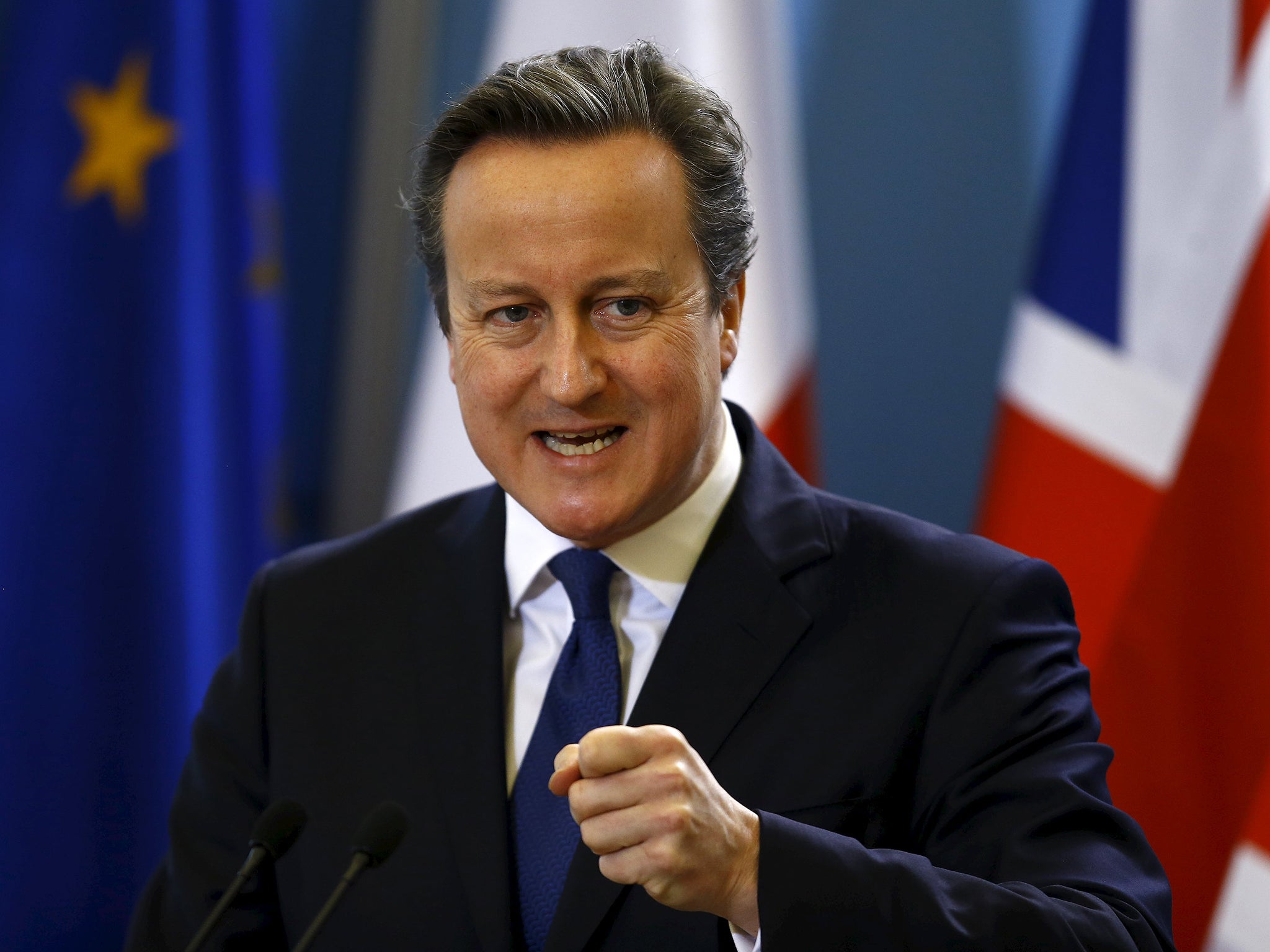Will David Cameron's EU renegotiation make any difference to you and everyday life in Britain?
The Big Question: Will we in Britain see any substantial change if this package is agreed and we decide to stay?

Why are we asking this question now?
In the next 24 hours we should know whether the Prime Minister has succeeded in his aim of getting 'a new deal for Britain' that will form the basis for voters to decide whether or not they want the country to stay in the European Union. Talks are due to start with other EU leaders on Thursday night - and will carry on Friday morning. We will know by lunchtime whether or not they have been successful and what the exact nature of the deal is.
What is David Cameron asking for?
Britain's Demands fit into four broad areas or 'baskets' as the Government likes calling them. These are: Sovereignty, Competitiveness, Migration and protection from the Eurozone. On sovereignty Cameron wants more power given to Parliaments to block Brussels legislation and a recognition that Britain does not sign up to the concept of ever closer union.
On competitiveness he wants the EU to reduce regulations emanating from Brussels and to extend the single market to areas like banking and insurance where the UK is traditionally strong but where it is harder to operate across 28 member states.
What has the EU ever done for us?
Show all 7On migration he wants a so-called emergency brake which would allow the UK to stop paying in work benefits to new migrants moving to the UK and an agreement that child benefits would only be paid at the rate migrants would get in their home countries. And finally he want assurances - in EU treaties - that as Eurozone countries move to integrate their economies those countries like Britain that don't have the single currency are not disadvantaged.
That doesn't sound like very much - why are other countries objecting to it?
There is no outright opposition to all David Cameron's requests - but some areas are causing difficulty for other countries for understandable reasons. Eastern European countries do not want their citizens disadvantaged by the new benefit rules and correctly point out that Britain is benefiting not only from their labour but also from the taxes they pay in this country.
Other countries, such as Belgium, have long wanted more and not less Europe so are concerned at any language that might rule out further integration in the future.
There are also some concerns that the protections the UK is seeking for Eurozone integration might give Britain an effective veto on measures needed to secure the success of the single currency - and ones which could hand the City of London an unfair advantage over the financial centres in France and Germany.
But will we in Britain see any substantial change if this package is agreed and we decide to stay?
Not immediately - and probably not in ways that we would recognise as such. However if British companies find it easier to expand into other European countries that will create some new jobs at home. If Brussels regulates a little less then this could make it easier for some companies to do business and employ more people.
Equally with the Eurozone if these new rules are accepted Britain will be able to carry on without the threat of changes down the line that could effectively force us to choose: join the Euro or leave the EU all together.
This still doesn't sound like very much?
Well it isn't really. But the problem Cameron has is that the big problem many voters have with the EU is not fixable.
No other country in the EU is going to allow Britain to restrict the number of migrants who come to this country to work because it would violate a key principle of the EU: Free movement of people. When that is taken off the table it is quite hard for the Government to come up with a deal that is clearly and easily sellable in a referendum campaign.
So will David Cameron's EU renegotiation make any difference at all to life in Britain?
Not in itself - but if it is not enough to persuade voters to stay in the EU when they cast their ballots in the referendum - then life will change very fundamentally in this country and in a way which nobody can predict. In reality this deal is about allowing David Cameron to claim that he has changed Britain's relationship with Europe in a way that tips the scales in favour of staying in.
But ultimately we will all be voting on the wider question of whether we want to be in the EU or not. That is a much more profound question which completely dwarfs what is being haggled over in Brussels on Thursday and Friday.
Subscribe to Independent Premium to bookmark this article
Want to bookmark your favourite articles and stories to read or reference later? Start your Independent Premium subscription today.

Join our commenting forum
Join thought-provoking conversations, follow other Independent readers and see their replies